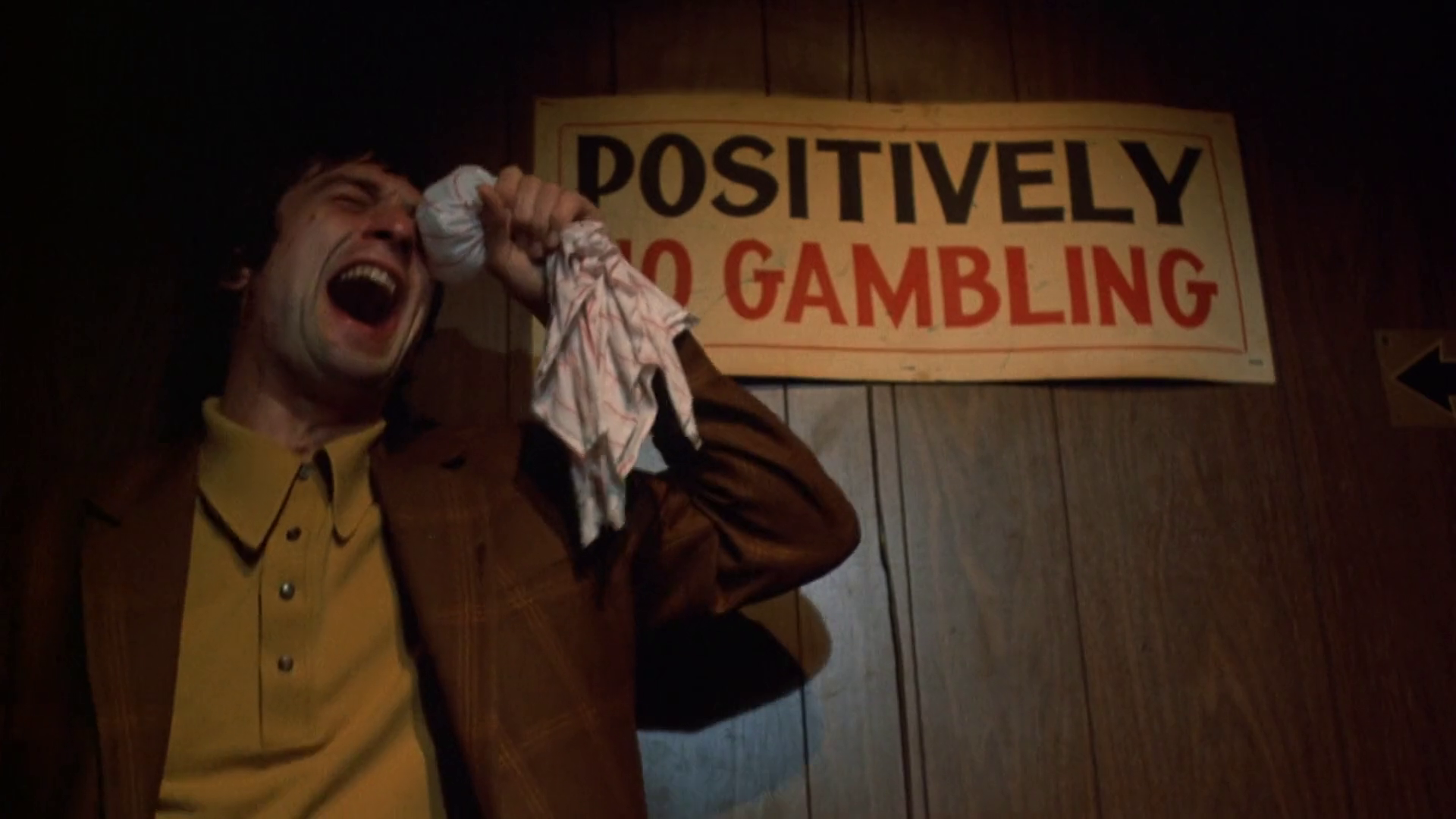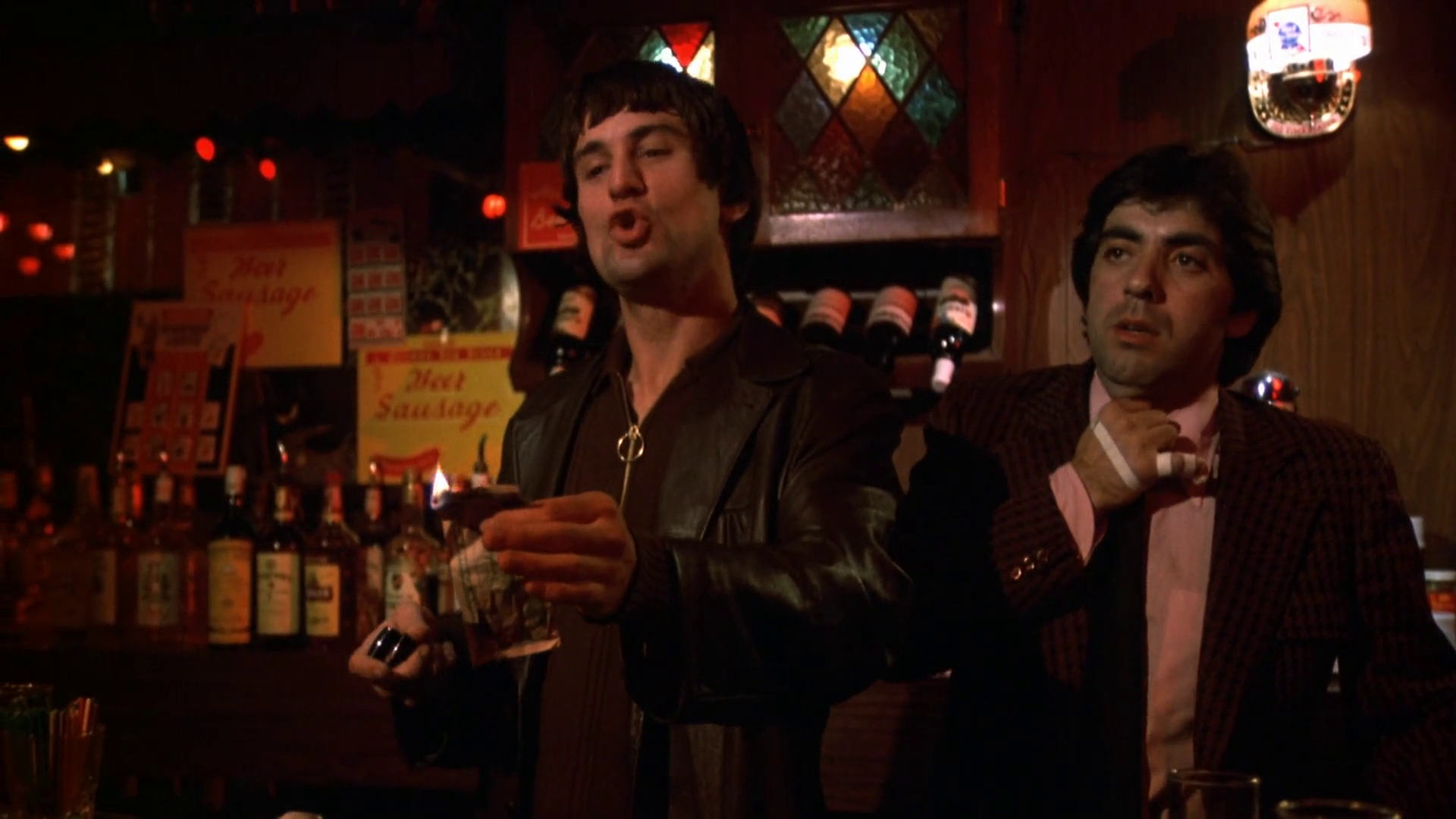In Martin Scorsese’s Mean Streets, Charlie – the straight, nice-guy, to-be gangster protagonist of the film holds his hand over a burning candle questioning the pains of hellfire. It’s quietly evident and retrospective about the personality of the main people at the center of Scorsese’s film that established him as a new cinematic voice in the realm of American-crime films.
The film travels with Charlie and his friends. The young, lowlifes who are slowly trying to establish themselves as the real romanticized gangsters that we see in the crime films today. The flipside of it is that the film doesn’t wish to establish any of that. It sure is about the mobster life in New York/Little Italy, street crimes, racism in the early 70s. But the naivety of the bored people at its center sets up for a grimly, dark, late-coming-of-age scenario inside the mobster world that they are slowly trying to move up into. Like the very aspects of a food-chain, Charlie and his other friends are kids wishing to run numbers, wishing to be respected (or threatened) for wearing suits and emoting mayhem of randomness.
Which brings us to the central theme of Mean Streets. It’s not about the meanness that is shown in films about mob violence. Neither is it about how certain shady characters wish to surpass the competition on the streets by hooligan-ing their way through it. Rather, Scorsese’s film is about the meanness of life – the sad, bored lack of progression in the world that these young to-bees want to be a part of. The action or the occasional outbursts of violence that feature is the film is either scattershot or too real to be put into a crime film. Which is exactly what Scorsese aims for.
There’s a scene in the film where Charlie, Johnny Boy, and their little gang go out to fetch some money from someone. This place is a large underground pool-club of sorts and everyone inside is either sloshed or has a cigar in their mouth. They are also the very low-key mobsters like Charlie and the gang and when a dispute irrupts the action that follows is more funny than intense. When I mean funny, I mean the state of these young know-nothings. They have a rage inside them which has no name but also wish to be somebodies with their sly lifestyle and their tight suits. So, when the fight ultimately takes place, we notice that every young fellow inside the pool-club is either busy avoiding a punch or saving their only possible piece of a suit.
Scorsese’s film is more eager to show what these people are going through or the reason why they are stuck in a quagmire of nothingness for themselves. Johnny Boy (Robert De Niro) is constantly called crazy and a hack who has landed himself in a huge debt but doesn’t necessarily wish to come out of it. Looking closely at De Niro’s rendition of Johnny Boy we, as a viewer are supposed to see him through Charlie’s eye. Charlie, who is often seen putting his hands over flames is dying to have a change in his life. He wishes to be like his uncle (The Mob Head), which is why he doesn’t like people to know that he is secretly in love with both – Johnny Boy (who once saved his life) and his cousin Teresa (Amy Robinson) who he can’t openly accept seeing as how he has a shot at being a big man. Is he too sympathetic to be a gangster?
There’s a lot of God-bothering rants in the film that is also partly about catholic-guilt. What starts with a nightmare also ends with one. Only this time, it’s real and Charlie has not even sinned yet. Mean Streets is a coming-of-age film that’s drenched in the stagnation of mob life represented with stark red color-palette and a force of reckless, unanswered insanity. The driving hedonism to revisit Mean Streets would only be to look for the people who changed American crime films forever. But there’s a hint of guilt, pathos, and sincerity in Scorsese’s naive characters that stay with you long after you are done with the streets and it’s heady consequences.




